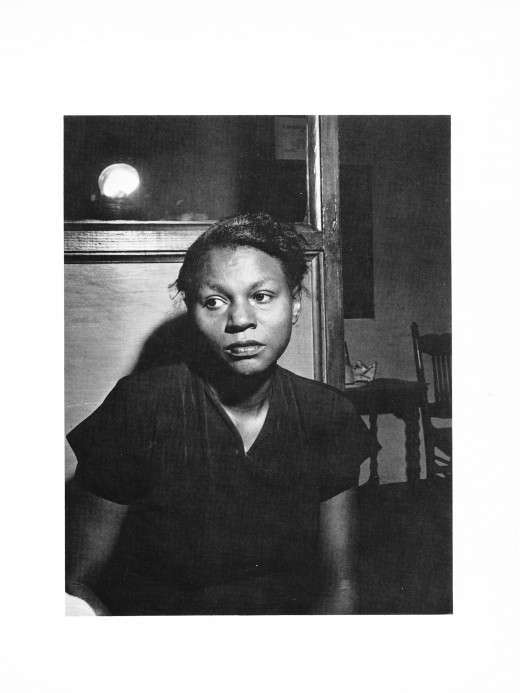Those Left Behind: A Lynched Man’s Wife…
I mentioned last week that I am doing some research about lynching in the United States. I am learning a lot that I didn’t know of course. I came across this amazing photograph…
I found it in a book about a photographic exhibit by Marion Palfi. Palfi called herself a “social research photographer” and documented poverty and oppression in America through her work. I plan to share more of her work here in the coming weeks since she documented the juvenile justice system in the mid-20th century.
Anyway, I was curious about the “wife of the victim” photograph so I did some digging. The caption that accompanies the photograph quotes the wife as saying: “Caleb was a good man…he believed in his rights and therefore died.” Who was Caleb?
Caleb Hill Jr was a 28 year old black chalk-miner living in a rural town called Irwinton, Georgia. He was a family man who cared for a wife, 3 children, mother, father, and two sisters. By all accounts, Caleb Hill was a hardworker and had a stubborn streak. He refused to back down from confrontation.
On the morning of March 30th 1949, Hill who had been jailed the night before for an altercation was kidnapped from his cell and later found dead. He had been shot several times and was badly beaten. Caleb Hill was lynched.
The New York Times published several articles about this case because the FBI became involved. The initial story told by Sheriff George Hatcher was that Caleb Hill grabbed his gun and shot at him as he was being arrested. Hatcher added that Hill had a terrible reputation and had been arrested several times before. The jail was located on the second floor of the Sheriff’s home. He explained that while he was asleep two white men kidnapped Hill. He claimed to have no leads as to who the kidnappers were.
The New York Times captured the reaction of the citizens of Irwinton, a town of less than 1000 people, by quoting one person saying “It’s just a Negro” and another commenting that the incident “didn’t upset a checkers game.”
Two men were eventually arrested a few days after the lynching. They were: Dennis Lamar Purvis (37) and Malcolm Vivian Pierce (27). One of the men turned out to be the cousin of the Sheriff. However after spending nine days in jail, an all-white grand jury freed the men ruling that there wasn’t enough evidence for a trial.
It was just another example of Southern injustice against black people. Thankfully though, we have Palfi’s portrait of Caleb Hill’s widow to help us remember the incident. Through it, I am able to recount the story of Caleb Hill’s lynching for a 21st century audience.
Looking forward to writing much more about the role of lynching in cementing our current PIC in the coming weeks… Happy New Year to all!

